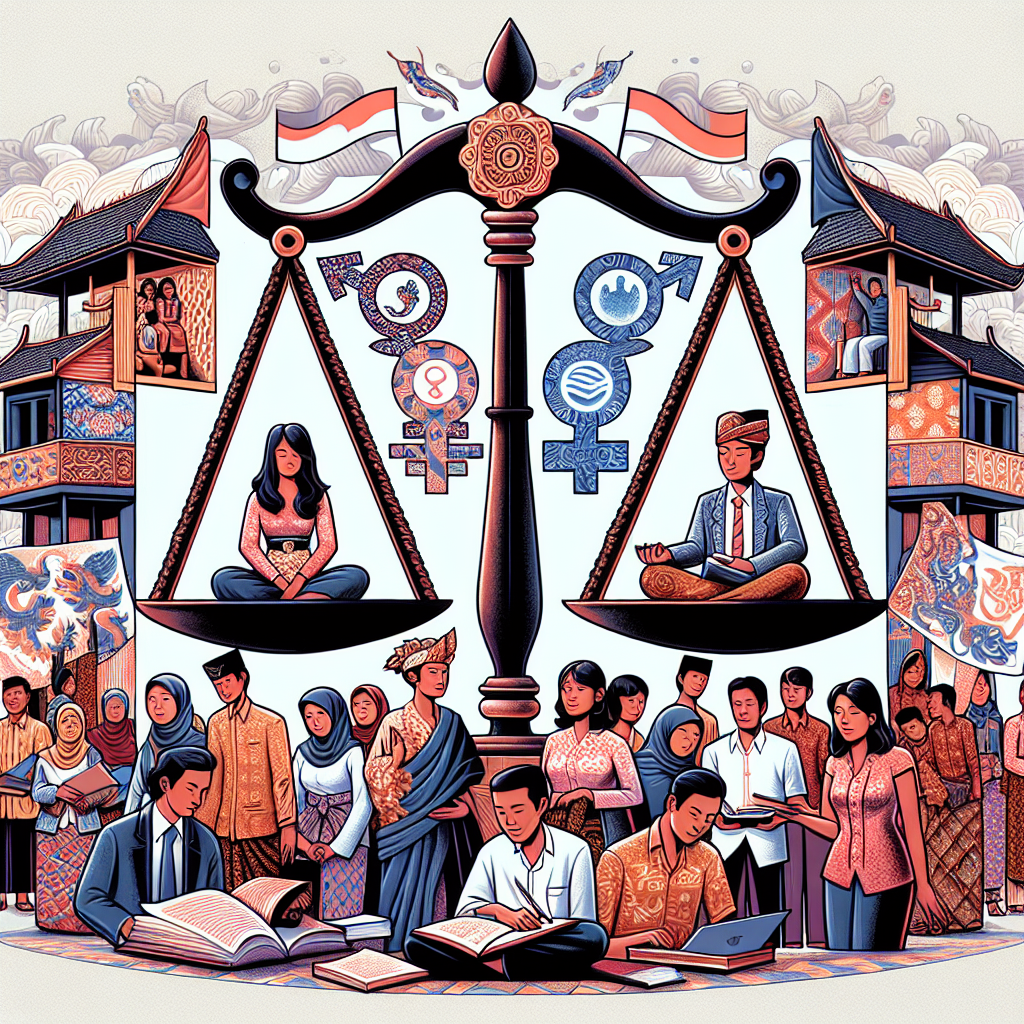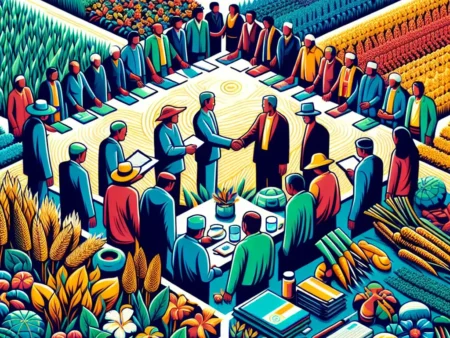Isu Kesetaraan Gender di Indonesia: Perjuangan untuk mencapai kesetaraan hak dan peluang antara pria dan wanita.
Isu Kesetaraan Gender di Indonesia
-
Table of Contents
- Introduction
- The Current State of Gender Equality in Indonesia
- Gender Disparities in Education
- Gender Wage Gap
- Violence Against Women
- Challenges to Gender Equality in Indonesia
- Deep-rooted Patriarchal Norms
- Legal and Policy Gaps
- Limited Access to Economic Opportunities
- Efforts to Promote Gender Equality in Indonesia
- Government Initiatives
- NGO and Civil Society Efforts
- Changing Cultural Norms
- Summary
Introduction

Gender equality is a fundamental human right that is essential for the achievement of sustainable development and the overall well-being of societies. In recent years, Indonesia has made significant progress in promoting gender equality and empowering women. However, there are still numerous challenges and issues that need to be addressed to ensure true gender equality in the country. This article will explore the current state of gender equality in Indonesia, the challenges faced, and the efforts being made to overcome them.
The Current State of Gender Equality in Indonesia
Gender Disparities in Education
One of the key areas where gender disparities exist in Indonesia is education. While the country has made significant progress in improving access to education for both boys and girls, there are still disparities in terms of enrollment and completion rates. According to data from the Indonesian Ministry of Education and Culture, the net enrollment rate for girls in primary education is slightly lower than that of boys. Additionally, girls are more likely to drop out of school due to various reasons, including early marriage, cultural norms, and economic factors.
Gender Wage Gap
Another significant issue related to gender equality in Indonesia is the gender wage gap. Despite the fact that women make up a significant portion of the workforce, they often earn less than their male counterparts for doing the same job. According to data from the International Labour Organization, women in Indonesia earn approximately 20% less than men. This wage gap is influenced by various factors, including occupational segregation, discrimination, and limited access to higher-paying jobs and positions of power.
Violence Against Women
Violence against women is a pervasive issue in Indonesia, with various forms of violence, including domestic violence, sexual harassment, and human trafficking, affecting women and girls across the country. According to a survey conducted by the Indonesian Ministry of Women’s Empowerment and Child Protection, around 35% of women in Indonesia have experienced physical or sexual violence in their lifetime. The prevalence of violence against women is influenced by various factors, including cultural norms, lack of awareness, and weak law enforcement.
Challenges to Gender Equality in Indonesia
Deep-rooted Patriarchal Norms
One of the main challenges to achieving gender equality in Indonesia is the deep-rooted patriarchal norms and cultural beliefs that perpetuate gender disparities. Traditional gender roles and expectations often limit women’s opportunities and reinforce gender stereotypes. These norms are deeply ingrained in society and can be difficult to change, requiring comprehensive efforts to challenge and transform them.
Legal and Policy Gaps
While Indonesia has made significant progress in enacting laws and policies to promote gender equality, there are still gaps and inconsistencies in their implementation. For example, the legal age for marriage in Indonesia is 16 for girls and 19 for boys, which can contribute to early marriage and limited educational opportunities for girls. Additionally, there is a need for stronger legislation and enforcement mechanisms to address violence against women and ensure the protection of their rights.
Limited Access to Economic Opportunities
Limited access to economic opportunities is another challenge faced by women in Indonesia. Women often face barriers in accessing credit, land ownership, and entrepreneurship opportunities, which hinders their economic empowerment. Additionally, occupational segregation and limited representation in decision-making positions further contribute to gender disparities in the workforce.
Efforts to Promote Gender Equality in Indonesia
Government Initiatives
The Indonesian government has taken several initiatives to promote gender equality and empower women. The National Action Plan for the Elimination of Violence against Women, for example, aims to prevent and respond to violence against women through various measures, including awareness campaigns, capacity building, and strengthening support services. The government has also implemented programs to improve access to education for girls and enhance women’s economic empowerment through skills training and entrepreneurship support.
NGO and Civil Society Efforts
Non-governmental organizations (NGOs) and civil society groups play a crucial role in promoting gender equality in Indonesia. These organizations work on various fronts, including advocacy, awareness-raising, and providing support services to survivors of violence. They also collaborate with the government and other stakeholders to develop and implement gender-responsive policies and programs.
Changing Cultural Norms
Efforts to challenge and transform deep-rooted patriarchal norms and cultural beliefs are essential for achieving gender equality in Indonesia. Various initiatives, including community-based awareness campaigns, education programs, and media campaigns, are being implemented to challenge gender stereotypes and promote more equitable gender norms. These efforts aim to change attitudes and behaviors at the individual and societal levels.
Summary
In conclusion, while Indonesia has made significant progress in promoting gender equality, there are still numerous challenges that need to be addressed. Gender disparities in education, the gender wage gap, and violence against women are among the key issues that hinder true gender equality in the country. Overcoming these challenges requires comprehensive efforts, including legal reforms, changing cultural norms, and enhancing women’s access to economic opportunities. The government, NGOs, civil society, and individuals all have a role to play in promoting gender equality and empowering women in Indonesia. By working together, it is possible to create a more inclusive and equitable society where everyone can thrive, regardless of their gender.







